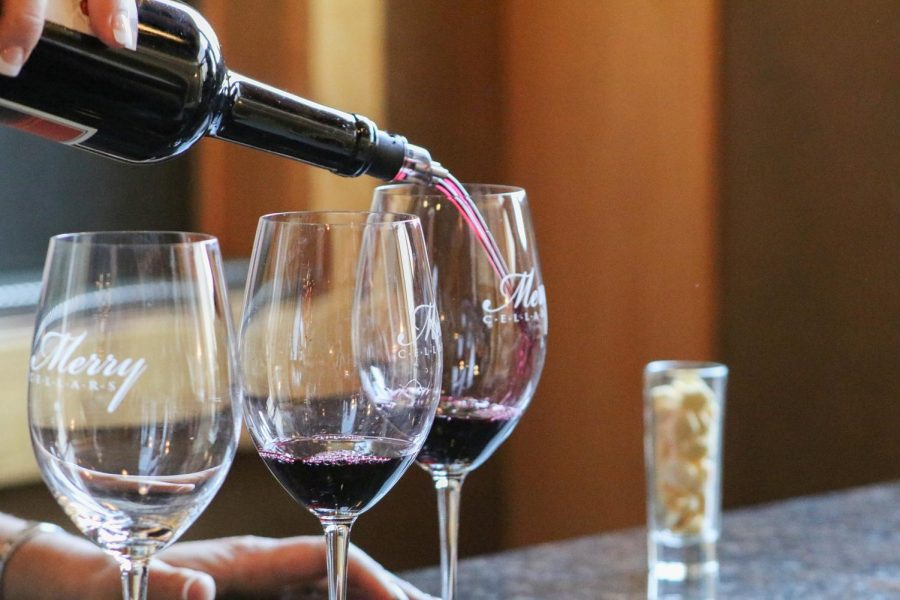Frozen leaves cause unusual taste in red wine
Winemakers, producers can avoid floral taste, smell in red wine by harvesting grapes earlier
OLIVER MCKENNA | DAILY EVERGREEN FILE
Unusual floral aromas are found in red wines when the grapes used to make the wine have been exposed to cold snaps in the early fall. This causes frozen leaves to stick to grape clusters which often end up harvested and bottled.
February 20, 2020
Unusual floral notes found in red wines are caused by frozen and dead leaves, according to a WSU professor.
Jim Harbertson, associate professor of enology for WSU’s Wine Science Center, specializes in the study of wines. He said he was tasked by Washington wine producers with explaining why red wines made from grapes picked from previously frozen vines develop unusual flavors and aromas.
Cold snaps in the early fall can be detrimental to the grape industry, often resulting in crop loss, he said. However, few growers attributed temperature as the cause to their wine’s changing taste.
When red wine grapes are harvested after a hard freeze, bits of frozen leaves stick to the grape clusters, Harbertson said. These leaf remnants often end up bottled along with the wine resulting in the unusual floral notes, he said.
The research was conducted by Harbertson and his team which included professors Markus Keller and Tom Collins as well as postdoctoral student Scott Frost.
They conducted an experiment where they added varying amounts of dead leaves to wines. It was discovered that winemakers could detect the unwanted aroma in all wines made with frozen leaves. Even the tiniest amounts of leaf dust produced the extra aroma, he said.
Through experimentation, Harbertson was able to theorize that the introduction of frozen leaves in the wine resulted in a significant reduction of tannins within the wine. Tannins determine the dryness, bitterness and astringency of wine, particularly red wine, he said.
“The leaves themselves seem to be causing an issue with the distraction of the tannins,” he said. “That’s a big thing for red wines because they give the wine its mouthfeel and astringency.”
Harbertson is continuing his investigation within the wine production industry, he said. Sensory trials are the next step towards confirming the theory. Through sensory trials, it will be determined which factors cause the changes in aroma and taste.
Winemakers want to know why their products are developing this extra aroma as well as how they can prevent it. Future research should be conducted to help growers with the frozen leaf dilemma, he said.
Harbertson proposed a solution for grape growers on how to avoid frozen fruit.
“Pick earlier,” he said.
However, he said this isn’t an option for many growers with unpredictable weather patterns.
Scott Frost said he hopes this research will make grape growers more aware of the forecast. If the growers can take measures to prepare for cold snaps then it can be avoided, he said. Cold snaps are seasons where producers lose over half of their fruit due to fall freezes.
Harberston said the way grape producers harvest may also be a cause for leaves ending up in the wine. With machine harvesting there is always a risk of getting dead leaves into the fermenter, he said.
He believes that his team’s research can change the production methods of grape producers and vineyards to better protect their product from unpredictable weather.










german • Mar 3, 2020 at 8:07 am
I have been having issues with finding the best red-wine for me. After reading this article, my issues has come to an end. I really love the information you provided here as it has helped me a lot. merely looking at the article, i can see that it is written by a PRO. please check my article on Facebook Marketplace Settings and give me valuable feedback. Thanks for the good write-up.